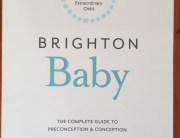 A study epublished in April 2015 reports that probiotic supplementation improves negative thoughts accompanying sad mood. The National Institute of Mental Health states that an estimated 16 million American adults (6.9%) had at least one major depressive episode in the past year with an additional 1.5% experiencing a milder form of depression known as dysthymic disorder.
A study epublished in April 2015 reports that probiotic supplementation improves negative thoughts accompanying sad mood. The National Institute of Mental Health states that an estimated 16 million American adults (6.9%) had at least one major depressive episode in the past year with an additional 1.5% experiencing a milder form of depression known as dysthymic disorder.
In this triple-blind, placebo-controlled, randomized trial, 40 subjects without mood disorders received supplementation for four weeks with a placebo or a multi-species probiotic, which included Bifidobacterium bifidum, Bifidobacterium lactis, Lactobacillus acidophilus, Lactobacillus brevis, Lactobacillus casei, Lactobacillus salivarius, and Lactococcus lactis. The investigators evaluated cognitive reactivity to sad mood using the Leiden index of depression sensitivity scale at the beginning of the study and again after the supplementation period. Increased cognitive reactivity to normal, temporary alterations in sad mood is considered to be an indicator of how susceptible a person is to depression.
The subjects in the probiotic group experienced a significantly reduced overall cognitive reactivity to sad mood compared to the placebo group. The reduced overall cognitive reactivity was accompanied by less rumination and fewer aggressive thoughts.
The study authors stated, “These results provide the first evidence that the intake of probiotics may help reduce negative thoughts associated with sad mood. Probiotics supplementation warrants further research as a potential preventive strategy for depression.”
Reference:
Steenbergen L, et al. Brain Behav Immun. 2015 Apr 7

















































































































































